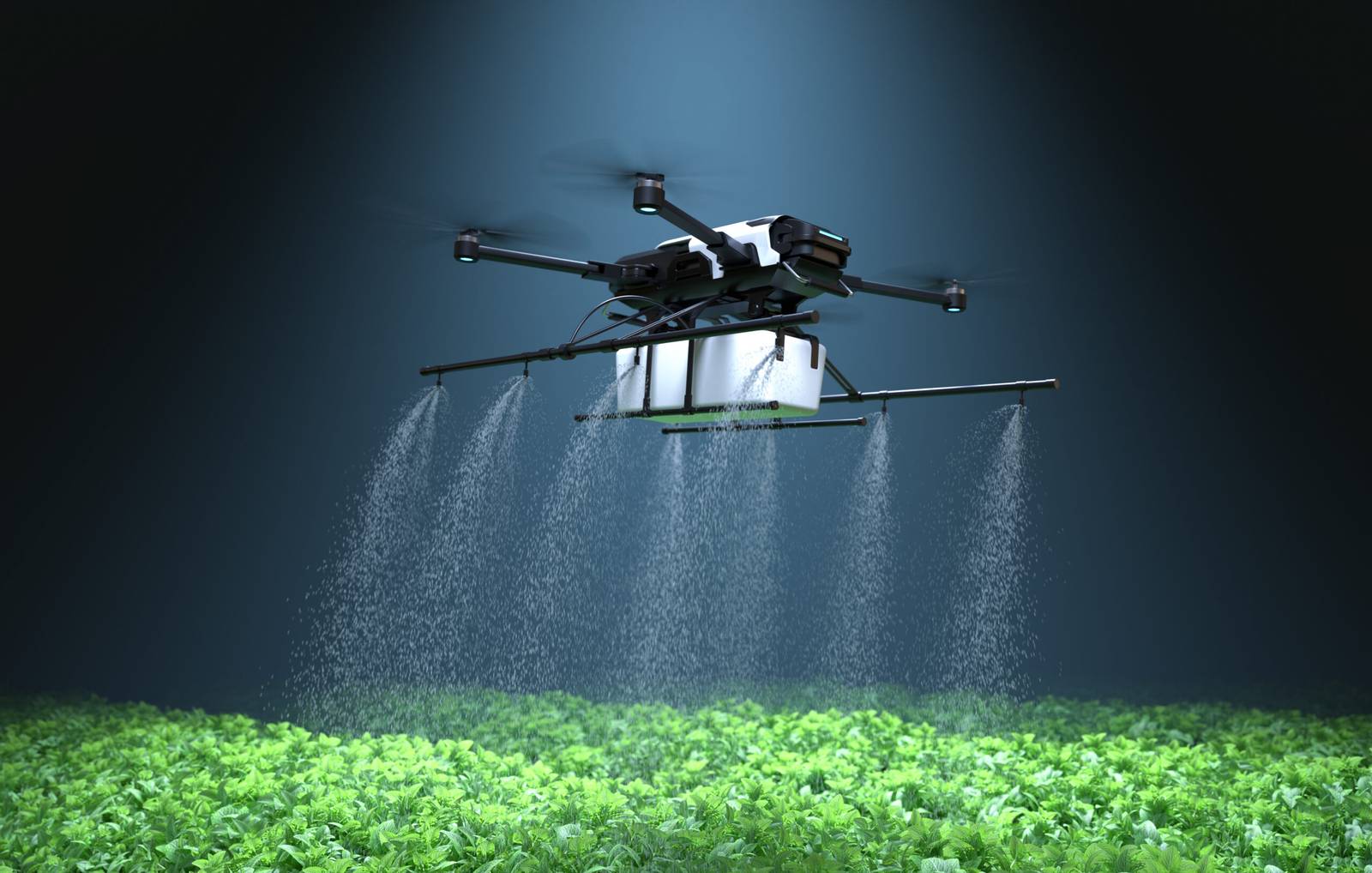AI in Precision Agriculture: Boosting Crop Yields

by Web Digital
In the ever-evolving landscape of agriculture, the integration of Artificial Intelligence (AI) stands as a beacon of innovation. This article explores how AI, particularly in precision agriculture, is revolutionizing farming practices, boosting crop yields, and paving the way for a sustainable and efficient future in food production.
Unleashing the Power of AI in Precision Agriculture
Smart Farming with AI:
AI applications in precision agriculture encompass a range of technologies, from sensors and drones to machine learning algorithms. These technologies collect and analyze data with unprecedented accuracy, providing farmers with actionable insights to optimize their operations.
Crop Monitoring and Management:
AI-driven sensors and drones monitor crop health in real time. By analyzing data on factors like soil moisture, nutrient levels, and plant conditions, AI enables farmers to make informed decisions, preventing potential issues and maximizing yield.
Precision Decision-Making with AI
Predictive Analytics for Crop Yield:
AI algorithms process historical and real-time data to predict crop yield. By factoring in variables such as weather patterns, soil quality, and crop types, AI models provide farmers with forecasts, allowing for proactive planning and resource allocation.
Optimizing Irrigation Practices:
AI aids in optimizing irrigation schedules by analyzing soil moisture levels and weather forecasts. Precision irrigation ensures that crops receive the right amount of water at the right time, reducing water waste and promoting optimal growth conditions.
AI and Automation: Transforming Farm Operations
Autonomous Machinery:
AI-driven autonomous machinery, equipped with sensors and cameras, performs tasks like planting, harvesting, and weeding. This automation not only increases efficiency but also reduces labour costs, making farming operations more sustainable.
Weed and Pest Management:
AI distinguishes between crops and unwanted plants, enabling targeted weed control. Similarly, AI identifies signs of pest infestations early on, allowing for precise intervention and minimizing the need for chemical pesticides.
Sustainable Agriculture through AI
Resource Efficiency:
AI optimizes resource use by precisely allocating water, fertilizers, and pesticides. This not only conserves resources but also minimizes the environmental impact of agriculture, contributing to a more sustainable and eco-friendly farming ecosystem.
Crop Rotation Recommendations:
AI analyzes data to recommend optimal crop rotation strategies. By understanding soil health and nutrient depletion, farmers can enhance soil fertility, reduce the risk of diseases, and improve overall crop yield.
Challenges and Considerations
Data Security and Privacy:
As AI relies heavily on data, ensuring the security and privacy of agricultural data becomes crucial. Implementing robust cybersecurity measures is essential to protect sensitive information related to farm operations.
Technological Accessibility:
Ensuring that AI technologies are accessible to all farmers, regardless of their scale or location, is essential. Efforts must be made to bridge the digital divide and provide training and support for the adoption of AI in agriculture.
Future Trajectories: AI’s Evolution in Agriculture
Advanced Robotics in Farming:
The future sees the integration of advanced robotics in agriculture, working in harmony with AI. From robotic pollinators to sophisticated harvesting machines, these innovations will further enhance efficiency and productivity.
AI in Crop Breeding:
AI accelerates crop breeding by analyzing genetic data to identify traits that enhance yield and resilience. This approach expedites the development of crop varieties better suited to changing environmental conditions.
Ethical and Social Implications
Fair Access to Technology:
Ensuring that AI benefits all farmers, regardless of their economic status, is vital. Policymakers and industry leaders must work together to create frameworks that promote equitable access and prevent technological disparities.
Ethical Use of Data:
As AI relies on vast amounts of agricultural data, ethical considerations must guide its use. Transparency in data collection, processing, and sharing is essential to build trust among farmers and stakeholders.
In Conclusion: Cultivating a Sustainable Future with AI
AI’s integration into precision agriculture is ushering in a new era of sustainable and efficient food production. From smart farming practices to data-driven decision-making, AI empowers farmers to navigate the complexities of modern agriculture. Embrace the green revolution catalyzed by AI, where innovation and sustainability converge to feed a growing global population.
Recommended Posts

AI in Sustainable Fashion: Eco-Friendly Designs
December 2, 2023

Tech in Entertainment: VR Experiences and Immersive Content
December 2, 2023

